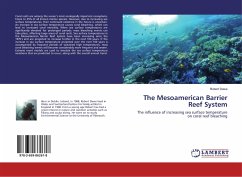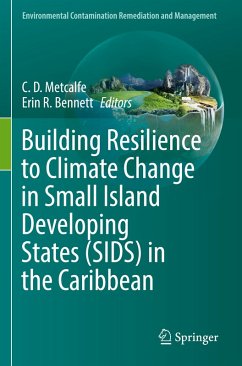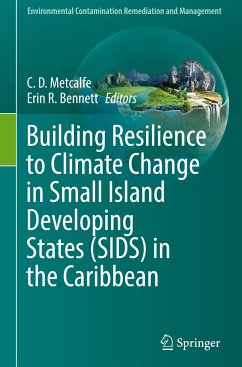
The Mesoamerican Barrier Reef System
The influence of increasing sea surface temperature on coral reef bleaching
Versandkostenfrei!
Versandfertig in 6-10 Tagen
27,99 €
inkl. MwSt.

PAYBACK Punkte
14 °P sammeln!
Coral reefs are among the ocean's most ecologically important ecosystems, home to 25% of all known marine species. However, due to increasing sea surface temperatures, their continued existence in the future is uncertain. An increase in sea surface temperature causes coral bleaching, which can lead to increased coral mortality. When sea surface temperatures are significantly elevated for prolonged periods, mass bleaching events can take place, affecting huge areas of coral reefs. Sea surface temperatures in the Mesoamerican Barrier Reef System have been increasing since the 1970's and are proj...
Coral reefs are among the ocean's most ecologically important ecosystems, home to 25% of all known marine species. However, due to increasing sea surface temperatures, their continued existence in the future is uncertain. An increase in sea surface temperature causes coral bleaching, which can lead to increased coral mortality. When sea surface temperatures are significantly elevated for prolonged periods, mass bleaching events can take place, affecting huge areas of coral reefs. Sea surface temperatures in the Mesoamerican Barrier Reef System have been increasing since the 1970's and are projected to increase further in the next 100 years. If the increase in sea surface temperature projected over the next 100 years is accompanied by frequent periods of sustained high temperatures, mass coral bleaching events will become considerably more frequent and severe. Extreme event models are used to simulate the sea surface temperature variations that are predicted to occur, along with the overall annual trend.












